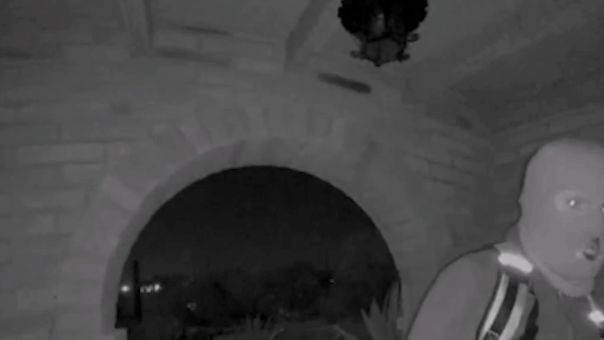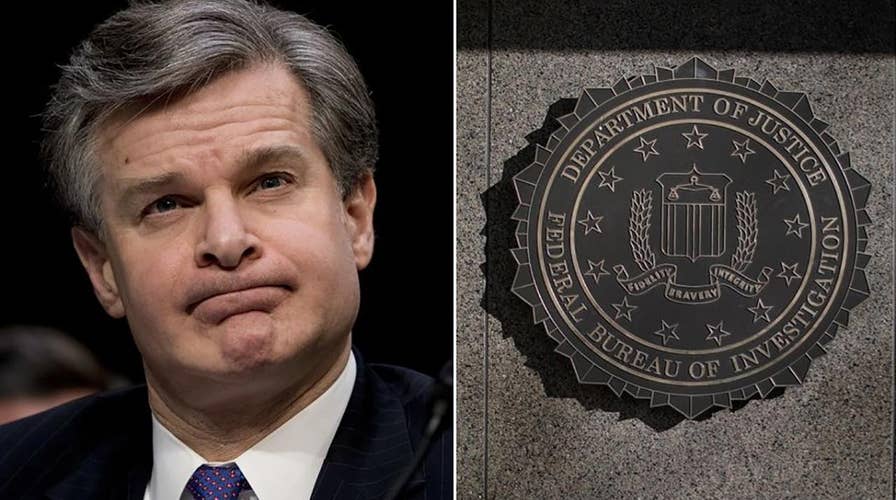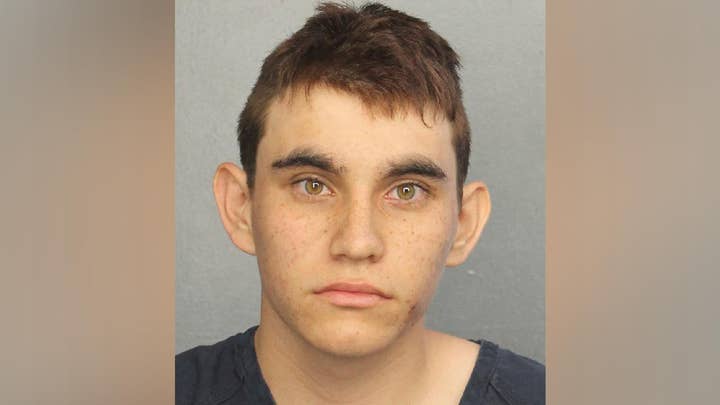FBI under pressure over failure to act on school shooter tip
Steve Pomerantz, former FBI assistant director, says people need to be held accountable for failing to follow up on warnings about suspected Parkland school shooter Nikolas Cruz.
The FBI, which has been a frequent target of criticism from the Trump administration and Republican lawmakers, now faces additional scrutiny after admitting Friday that it botched a tip that could have averted Wednesday's massacre in Parkland, Fla.
America’s top law enforcement agency said it failed to act on information that alleged shooter Nikolas Cruz had a “desire to kill people,” had written a series of alarming social media posts and had access to a gun.
Cruz, 19, is suspected of opening fire at Marjory Stoneman Douglas High School, where he was a former student, killing 17 people and injuring more than a dozen others.
The latest revelation followed previous reports that the FBI failed to follow up on a September tip flagging a YouTube comment posted by a “Nikolas Cruz,” which said “Im going to be a professional school shooter.” The FBI said it could not identify the user who made the comment.
U.S. Attorney General Jeff Sessions, who oversees the FBI as head of the Justice Department, called Wednesday's rampage a “tragic consequence” of the FBI’s mistakes, and ordered a review of Justice Department procedures.
Florida Gov. Rick Scott, meanwhile, called for FBI Director Christopher Wray to resign, and U.S. Sen. Marco Rubio, R-Fla., said the agency’s failure to follow protocols was “inexcusable.”
Rubio urged Congress to launch its own investigation of the FBI's actions.
U.S. Rep. Ted Deutch, D-Fla., vowed to be in "close communication with the FBI so we can get to the bottom of this."
Wray, who succeeded the fired James Comey, has been at the helm just six months -- during a time of intense pressure from Republicans, who claim there are signs of bias in Special Counsel Robert Mueller’s investigation into possible Trump-Russia collusion.
Some GOP lawmakers also are upset over a Justice Department decision not to charge Hillary Clinton for using a private email server while she served as U.S. secretary of state from 2009 to 2013.
Meanwhile, Friday wasn't the first time the FBI could arguably have prevented a major violent attack.
In 2015, a breakdown in the FBI’s background-check system helped a white supremacist purchase a weapon and kill nine people at a historically black church in South Carolina. A prior run-in with the law should have been enough to bar the suspect from buying a gun.
Congress also scrutinized the FBI in 2009 for failing to act on emails between the gunman who killed 13 people at Fort Hood, Texas, and terrorist Anwar al-Awlaki.
Scott said an apology from Wray for the FBI’s errors “isn’t going to cut it.”
The Associated Press contributed to this report.












































